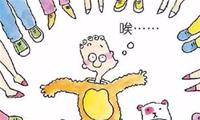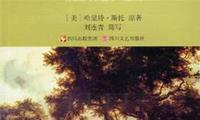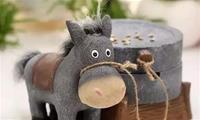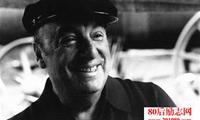寂靜的春天英文讀後感
“There was a strange stillness. The birds, for example—where had they gone?” “The feeding stations in the backyards were deserted. The few birds seen anywhere were moribund; they trembled violently and could not fly. It was spring without voices.” “On the farms the hens brooded, but no chicks hatched.” “The roadsides, once so attractive, were now lined with browned and withered vegetation as though swept by fire. These, too, were silent, deserted by all living things. Even the streams were now lifeless.”
This is a strange scene described by Rachel Carson, who is regarded as “the mother of modern environmental protection movement”。 Silent Spring is her representative work which lighted the fire of environmental protection in America and the whole world. Before 1960s, no books or magazines talked about things like environment and ecosystem. Such a phenomenon means that environmental protection had not come to people’s mind and the social consciousness. Indeed, the main opinion in human society from the very past about nature is to “set war against” or “conquer” it. In fact, many of human’s progresses are made on the base of such opinion. Rachel Carson was the first person who doubted the correctness of the belief and brought the topic under focus.
In Silent Spring, Carson described a miserable village which was dying under the using of DDT. The village used to be prosperous and beautiful. “In spring, white clouds of bloom drifted above the green fields. In autumn, oak and maple and birch set up a blaze of color that flamed and flickered across a backdrop of pines. Then foxed barked in the hills and deer silently crossed the fields, half hidden in the mists of the fall mornings.” She thought that with the using of variety kinds of pesticide, especially DDTs, the village suffered enormous and irreversible damage and gradually withered and died. Soon it became just like the one described in the beginning. From her fine and smooth describing, I can even feel the groan of the town. Moreover Carson also sharply pointed out that the deep-seated cause for the environmental problem is the human’s arrogance and ignorance. So she asked people to correct the attitude toward the nature and reconsidered the developing path of human being.
Carson thought that because of the antibody and differentiation, pesticides would never be completely useful. On the contrary, those more and more poisonous medicines, because of the enrichment effect, would accumulate in humans’ body. It’s quite sarcastic that we hurt ourselves much badly while hurting the others. Then she analyzed many poisonous components in pesticides. Those are all unfamiliar names except DDT, such as chlordane, chloronaphthalene, compound 497, etc.
Those things really make me feel scared. We are on the top of the food chain, and it is such a perfect and fragile system. We human beings are just part of it and we depend on all of the creatures who stay on the lower positions. It is so hard and ridiculous to try to match the nature. ”Only in the state does man have a rational existence.” Every species have their value to be on this world. Then no one knows what would happened if we force them to disappear. For example, let’s imagine the food chain as a meticulously made castle built by billions of little blocks and we human beings are the top one. There might be several tiny blocks on the bottom which you think is useless and dispensable. But what would happen if we take them away? Perhaps nothing happened, and perhaps the whole castle ruined.
Destruction is always much easier than recovery, not counting those incurable ones. Humans always think that we are much cleverer than the other animals, so we become more and more conceited and firmly believe that we are the king. We didn’t see that the nature is so magical and knows how to revenge. The pay back is much more violent and cruel. We need balance and order. The nature has its own rule. Our aim is to use it and live in harmony with it. The ecosystem is so delicate that even a tiny disturbance could lead an unexpected consequence, just like the butterfly effect.
At the last chapter, some scientists came up with other ways to solve the pest problem----biotic control. There is now a strongly running tide of interest in chemical sterility. Those sterile insects are released and mate the normal ones so that they won’t have any larva and get extinct gradually. This “solution” seems to be reasonable and helpful, but thinking about it carefully, you’ll find that it is just another way to ruin the food chain castle. Not only spring, but also summer and autumn would be still and silent in the future.
It is lucky that Rachel still kept her mind clear. She didn’t agree with the way of conquering the nature. At the very end of the book, she wrote, “The ‘control of nature’ is a phrase conceived in arrogance, born of the Neanderthal age of biology and philosophy, when it was supposed that nature exists for the convenience of man.” This sentence can be regarded as the book’s theme topic which is widely quoted in all kinds of articles about environmental protection.
Carson is a great woman and fighter. When writing the book, she was suffering from huge pain of the operation for mammary cancer. After the book was published, the widely affect brought her not honor and fortune, but fierce attack from the chemical estate. She died only one year after the book’s publishing. On the spring of 1964, the great woman passed away, but Silent Spring made her voice never silent.
The 20st century was a time that technology and economy developed rapidly, especially the 40 years after Silent Spring was published. But every spring, when flowers bloom, trees sprout, and water begins to flow, we used to recall a woman and her enduring works. We opened the window, and wonder if the spring is silent today, if it will be silent tomorrow.
嘉莉妹妹英文讀後感
Theodore Dreiser, born in Terre Haute, Indiana, USA, was raised in poverty and in a German-speaking environment. He left home for Chicago at age 16. After a period of odd jobs and a year at the University of Indiana, he became a Midwestern newspaper reporter and, in New York after 1894, a magazine feature writer. In 1892, married Sara White, but their marriage wasn’t happy, so they have been separated since 1909 and never officially divorced
Sister Carrie (1900), his first and still highly regarded novel, was withheld from general distribution because of it was supposed amoral, and its commercial failure plunged him into financial distress and mental breakdown. Some reasons which caused the difficulties of publish can be seen from the social background of the society of that time. At the time, United States is experiencing a rapid social change, it was transforming from free capitalism transition to the monopoly capitalism. The whole American literature was indulged in idealism, many writers preferred to describe the optimistic aspect of life. The novel is regarded as entertainment products; works is full of illusory ideal and covered by romantic color. The exploiter and exploitee lived a completely different life. The ugly phenomenon in the society was not reflected in literature works. In Sister Carrie, Dreiser truthfully reveals the dark side of the social life, and that’s the reason why the author constantly suffered from persecution. The novels have been classified as "banned", and can not be published in the America.
Sister Carrie is about a young country girl who moves to the big city where she starts realizing her own American Dream, first as a mistress to men that she perceives as superior, and later becoming a famous actress. It has been called the "greatest of all American urban novels."
The personal life of the writer has very close relationship with his work Sister Carrie. There are some similarities between the author and the heroine. First, the heroine was born in a poor family just as same as the author. That’s why the author can know so clearly about the psychological activity of the poor girl Carrie and described it in such delicate words. Second, it can be seen from the novel that the place where the girl chase her dream was Chicago. The author also has gone to the same place to fulfill his dream. So he saw what Carrie saw. For instance, how the rich men lived, how they enjoy their life, what was the poor’s life like, with such a living experience, the gap between the rich and the poor was so truly reflected before our eyes. Third, they all once are earning meager support from menial jobs. Forth, they all have the same dream. Dreiser has admitted that he was once chased after the pleasure from material things, but he despised it afterwards. Carrie’s life was always surrounded by her chasing for a better material life. At the beginning, she left her hometown and came for her sister. But when her sister’s living couldn’t attract her anymore, she went to the salesman Drouet, then Hursthood and at last the theater. Except the heroine, the character Hursthood was not so happy in his marriage life, so was the author. Hursthood was suppressed and looking for something new, thrill and beautiful. Maybe Hursthood’s mental state was just like the author’s during that period. Sven Hanson, Minnie's husband, of Swedish extraction and taciturn temperament. As we all know, Dreiser’s father was a Swedish, a severe rigid and distant man. We can slightly suppose that the character of Sven Hanson was originated from his father.
As for Carrie, there’s such a sentence in the book: “In Carrie—as in many of our worldings do they not?— instinct and reason, desire and understanding, were at war for the mastery. She followed whither her craving led. She was as yet more drawn than she drew. ” This seems tells us that the currency of the society is an overwhelming power that pushes one to do something and defines the view of value for the people. I think this sentence is the perfect description for Carrie and all her stories, every choices she made just show us how suitable this description is for her. Through the heroine, the author tries to reveal the human nature nakedly before our eyes. When Sister Carrie ran out of her sister’s home without any money, she met Drouet and he gave her ten soft dollar bills. On the one hand, she felt ashamed because she has been weak to take it. But on the other hand, her need was so dire, she was still glad. That’s the contradiction of her nature. After she met Hursthood, she was attracted by him. On the one hand, she felt guilty. But on another, she was longing for a better life. And it’s also the same situation when she left Hursthood when he became poor. As for Drouet, the book tells us in regard to his pursuit of women, he meant them no harm, because he did not conceive of the relation which he hoped to hold with them as being harmful. He chased women not because he was a cold-blooded, dark, scheming villain, but because his inborn desire urged him to that as a chief delight. That’s the contradiction of Drouet’s nature.
Most people say Sister Carrie’s story is a story of her American dream comes true. But I disagree with it. Carrie does have her dream come true, finally she lives a rich life and is admired by others. But what is American dream? It is a set of ideals in which freedom includes the opportunity for prosperity and success, and an upward?social mobility?achieved through hard work. While from the book I can’t see a hardworking girl. When Carrie’s looking for a job, she is so timid and can only see the material things that workers get instead of the pain they bear. After she get a job of making shoes in a factory, she does feel happy at first, but soon facing the easy money from she does want to do this work anymore. Of course, as a girl, in such a society, with such economic situation, she might not have so many choices. But, although Carrie did something not so good, I still can not hate this character. Because she’s so real, she just follows her nature to live her life. She’s beautiful and smart, if she is born in a wealthy family, then she will not depend men to live. But no one can choose where to be born; destiny seems just so unfair sometimes. The most pity thing I think is that although Carrie lives a rich life at last, but she doesn’t find the true meaning of living. But the true meaning of life is always obscure; nobody knows exactly what it is. So why bother to think about it, just live our life good.
朝花夕拾小引讀後感(一)
《朝花夕拾》小引其中一句話:我有一時,曾經屢次憶起兒時在故鄉所吃的蔬果:菱角、羅漢豆、茭白、香瓜。凡這些,都是極其鮮美可口的;都曾是使我思鄉的蠱惑。後來,我在久別之後嘗到了,也不過如此;惟獨在記憶上,還有舊來的意味存留。他們也許要哄騙我一生,使我時時反顧。
童年,是一段充斥色調和歡喜的追念,是一段無憂無慮的時光,是一段酸酸甜甜的人生過程,同時也是最純真美好的!和魯迅老師一樣,咱們都有著很多回憶!
回想那一件件不起眼的事兒來,事雖然小,但那些回憶是那樣覺得感動,因為有了這些回憶才能讓自己不斷進步,不斷追斷求,這樣才能成長起來,童年總叫人回想。回想那五彩繽紛的夢,回想起那丫丫學語的時候,回想起剛學走路的時候,第一次踏上舞臺的時候,第一次叫出父母時,第一次……那一刻刻,那一個個鏡頭,霎時間浮現在你的眼前。
藍天下的成長,夜空中的夢想又如在沙灘上堆積起一座座小小的城堡,堆積起在藍色海邊的夢;小時候我總是喜歡在榕樹下玩耍,又喜歡在那靜靜地坐著,聽著老人講那古老的故事,那時的夢是綠色的;小時候我總是喜歡在老家門前坐著,在落葉的秋天裡欣賞那一片片穿著金色的葉子在漫天飛舞,
回憶讓世界一切萬物變得安靜,讓人變得放鬆,讓人感到溫暖,讓你回想起遙遠而不遙遠的夢,讓你回想起在雨中,那雨兒是跳動的旋律。當你摔倒時,一種力量在看著你,讓你回想起在藍天下放飛紙飛機,放飛你一個個讓你期待的夢!
時鐘只有前進,不可能倒退。童年只有回味和回憶……
童年只有回憶,夢只有創造,將來只有拼搏……
童年以是過去的事了,只有回憶起那點點滴滴的事,只有積累更多的經驗,這路才能走得更遠更寬。
夢常常都會變化著,夢是人一生中追求的目標,只有奮鬥和拼搏,那才會夢想成真,那才會成為現實。
只有回憶一切都會讓你覺得美好……
朝花夕拾小引讀後感(二)
我讀了《朝花夕拾》的“小引”後,瞭解了魯迅創作時的心情和書名的含義,魯迅總是以帶著仇恨,激動,痛苦和一種複雜的心情下寫下了這篇小說。
我帶沉重的心情進入了下一篇《狗·貓·鼠》《阿長與山海經》《二十四孝圖》《五猖會》《無常》《從百草園到三味書屋》《父親的病》《鎖記》《藤野先生》包括《狗·貓·鼠》中都描述了魯迅小時候令他難忘的事。
《狗·貓·鼠》中作者用借物喻人的寫作手法諷刺了那些欺負弱小,一旦抓住別人的弱點或不足之處,()就想盡辦法慢慢折磨別人的人。
“別人不肯做或不能做的,他卻成功了”魯迅用這樣的話來表達自己對阿長的尊敬和感激,因為阿長把他渴求的《山海經》買來,並送給了他。
在《父親的病》中魯迅流露出對父親強烈的愛,雖然有時父親對他很嚴厲但他從來沒有責怪過父親。
在《藤野先生》一文中作者細緻描寫了一位和藹可親的藤野先生:外表不修邊幅,生活簡樸,卻治學嚴謹,待人真誠,且能正直熱情地拋棄民族偏見去關心一個來自落後國家的窮學生。
兒時給自己留下深刻印象的長媽媽,在異國他鄉給予自己真誠關懷的藤野先生;人生坎坷結局令人扼腕的范愛農,
文章深刻表達了自己對兒時的懷念,文章曲折的表達了他對現實不滿的情緒。
在我的後院,
可以看見牆外有兩株樹,
一株是棗樹,
還有一株也是棗樹。
——魯迅
朝花夕拾小引讀後感(三)
手捧魯迅先生的《朝花夕拾》,品味著從字裡行間透露出年少輕狂時的童真,神思似乎也飄向了那份曾經屬於我們的逍遙日子。
《朝花夕拾》,正同於它另類的名字一樣,這本膾炙人口的巨作,是魯迅先生在風燭殘年的歲月裡寫下的。老了,累了,回味起童年時的點點滴滴,心中還是會有當初的味道,想必還別有一番滋味吧。清晨綻放的鮮花有了晨曦會顯得更加嬌嫩,
魯迅先生是一派大作家,他的童年並不乏味。他是鄉下人,卻能和城裡人一樣去讀書。少了鄉下孩子的粗狂,多了一份知書達理。少了城裡孩子的嬌氣,多了一種大度氣派。他懷念在百草園無憂無慮的日子,與小蟲子們為伍,仿佛這樣的童年才夠味兒。趁大人們一愣神,以神不知,鬼不覺的神速,鑽進百草園。油蛉在這裡低唱,蟋蟀也會來伴奏,魯迅的童年似乎是在一首大自然圓舞曲中度過的。
枯燥,乏味,是對魯迅先生在三味書齋的最好的詮釋。稍稍偷懶一會兒,也會被壽鏡吾老先生的一句:“人都到哪裡去了?”喊回來,整天除了讀書還是讀書,閑來無趣。
從書卷裡散透出的天真爛漫,不經意間似乎也把我感染了,或許魯迅的文章真有什麼魔力吧,他用一個孩子處世不深的目光探射了我的心,引起了我的共鳴。
有人說:要看一個人是不是真的會寫文章,最主要還是看他的文章裡有沒有感情。老師也曾說過:只有情感才能把文章變成有血有肉的。我不得不承認魯迅確實厲害,他的一切話語雖然平淡樸實,熾熱的情感卻展露無疑。他希望與大自然真正擁抱在一起,憧憬在山水間流連,嚮往與小蟲子們打成一片的日子。讀著讀著,仿若年邁的老人頓時變成了一個活力四射小孩子,身上散發著陽光般的氣息。
小的時候,自己也曾擁有過那樣的光輝世紀。喜歡坐在河岸邊看著鴨子從身前遊過,頒著手指頭細數“一隻,兩隻……”;喜歡奔跑在林間小道,拋開心中的不愉快,盡情去笑,不用管禮數是否;還喜歡躲在一個隱秘的地方,看著同伴進進出出找自己的忙碌身影,最後因為自己躲的技術太高超,無奈,只得向我低頭認輸。想到這裡,心中有種竊喜的感覺,說不上來是什麼。好象是一個小小的“陰謀”得逞了,又像是躲過了一場小小的“災難”。
我們的童年漸行漸遠,留下的是一個美麗的回憶。《朝花夕拾》,去領略一下魯迅的童年,慢慢體會其中的幸福童年味兒吧。瑣碎的記憶在《朝花夕拾》中重現,不一樣的年代,一樣的快樂,童年,惹人懷念啊。
是對魯迅先生在三味書齋的最好的詮釋。稍稍偷懶一會兒,也會被壽鏡吾老先生的一句:“人都到哪裡去了?”喊回來,整天除了讀書還是讀書,閑來無趣。從書卷裡散透出的天真爛漫,不經意間似乎也把我感染了,或許魯迅的文章真有什麼魔力吧,他用一個孩子處世不深的目光探射了我的心,引起了我的共鳴。
有人說:要看一個人是不是真的會寫文章,最主要還是看他的文章裡有沒有感情。老師也曾說過:只有情感才能把文章變成有血有肉的。我不得不承認魯迅確實厲害,他的一切話語雖然平淡樸實,熾熱的情感卻展露無疑。他希望與大自然真正擁抱在一起,憧憬在山水間流連,嚮往與小蟲子們打成一片的日子。讀著讀著,仿若年邁的老人頓時變成了一個活力四射小孩子,身上散發著陽光般的氣息。
小的時候,自己也曾擁有過那樣的光輝世紀。喜歡坐在河岸邊看著鴨子從身前遊過,頒著手指頭細數“一隻,兩隻……”;喜歡奔跑在林間小道,拋開心中的不愉快,盡情去笑,不用管禮數是否;還喜歡躲在一個隱秘的地方,看著同伴進進出出找自己的忙碌身影,最後因為自己躲的技術太高超,無奈,只得向我低頭認輸。想到這裡,心中有種竊喜的感覺,說不上來是什麼。好象是一個小小的“陰謀”得逞了,又像是躲過了一場小小的“災難”。
我們的童年漸行漸遠,留下的是一個美麗的回憶。《朝花夕拾》,去領略一下魯迅的童年,慢慢體會其中的幸福童年味兒吧。瑣碎的記憶在《朝花夕拾》中重現,不一樣的年代,一樣的快樂,童年,惹人懷念啊。







